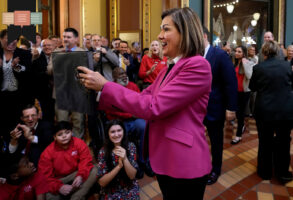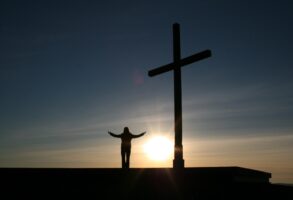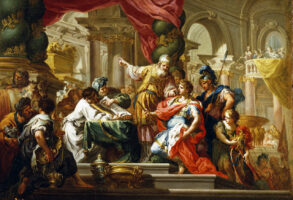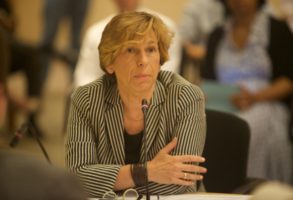
Published November 10, 2021
Many arguments for college attendance today hinge on job preparation. A “proper” post-secondary education is said to primarily provide one with the skills and knowledge needed to perform a given job. Prospective students are advised to choose a college primarily based on its reputation and its purported success in placing graduates in jobs.
One downside of this view is that education becomes nothing more than a means to an end. A heavy emphasis on the utility of education often means we miss the richest parts of education — the goods offered for their own sake. Indeed, for some schools, such as classical K-12 schools and liberal arts colleges, learning should be sought for its own sake rather than as a means to an end.
Eva Brann, the longest-serving tutor at St. John’s College in Annapolis, Maryland, stands as one of the strongest voices for the view that liberal education is an end in itself, and that schools and colleges of liberal education offer something to their students that the standards of utility cannot measure. In Brann’s words, liberal education “is a slow self-development guided by teachers who are also and genuinely fellow learners.”
Born in 1929 to a Jewish family in Germany, Brann and her family eventually settled in Brooklyn. After attending Brooklyn College, she went on to receive her doctorate in archeology from Yale University. In 1957, she began teaching at St. John’s, where she has become renowned for her advocacy of liberal education, her emphasis on the Great Books, and her commitment to Socratic inquiry.
In Brann’s view, education means cultivating an untutored individual into a fully flourishing human being. The purpose of education is not to make society better but to make the student better. Reducing education to societal improvement would be to make it a mere utilitarian exercise. Still, Brann believes the “development of useful citizens,” while not a direct aim of liberal education, “is an obliquely achieved though ardently desired by-product.”
Young adults desire to know and to form meaningful friendships. They want to ask thoughtful questions and engage their imaginations. They are gaining their first taste of independence, and this gives them the energy to inquire into ends rather than means: How do I live the best life? What is happiness? What is the good? These questions are natural to both the young and liberal education.
A key facet of liberal education is a curriculum set by faculty rather than one chosen by students. Students must form their judgment before they are granted the power of choice. But this set curriculum, despite an initial appearance of taking away freedom, sets up its students for a course of free learning. Liberal education provides freedom through the student’s ability to ponder the subject at hand through a teacher-guided discussion, commonly referred to as Socratic questioning. Unencumbered by the distraction of making choices about curriculum, students are free to inquire into the text at hand.
For Brann, the purpose of education is the development of the soul through inquiry and reflection. Students learn by asking questions. They learn not principally from the answers they receive but by the probing questions they ask. Asking questions displays a sense of wonder and humility. By asking vital questions of “how” and “why,” students are forced to realize where their knowledge is lacking and demonstrate that they are willing to fill gaps in their understanding.
An integral part of the set curriculum is the Great Books. To be sure, any book can be read, but literature that has withstood the test of time is the best starting point for liberal education. Before the Great Books, faculty and students join together in shared inquiry. Though they are the more experienced learners, Brann insists that faculty must join in inquiry alongside students.
By reading books that have been distinguished as excellent, students will learn what separates what is good from what is truly great. The capacity to make this distinction will shape future judgments throughout all aspects of their life. “Real choice depends on knowledgeable judgment, and such judgment comes after education, not before it.”
Brann views books as a microcosm of the wider world. By learning to read books, students explore and discern all that surrounds them. They learn about pain and hardship, joy and excitement. They learn how people interact, and they dissect the hidden thoughts and inner motives of other people. Finally, they learn to encounter great, difficult things on their own ground and work their way through them.
The Great Books, Socratic dialogue, a set curriculum, and the firm conviction that education undertaken liberally is an end in itself distinguish liberal education from utilitarian forms of education. Brann’s vision does not exist only at St. John’s College — these elements separate small liberal arts colleges from the utilitarian education of their competitors throughout the country. Despite their minority position in the field of education, Brann urges these liberal arts colleges to continue to provide an education in which students pursue learning for its own sake.
In a time that prizes vocational training, on the one hand, and indoctrination masquerading as education, on the other, Eva Brann’s writings can help readers recapture a vision of education that is truly free — free from utilitarian concerns, and a good in itself.
Ian Lindquist is a Fellow at the Ethics and Public Policy Center. This overview of Eva Brann is based on his in-depth interview with Hillsdale College’s K-12 program.
Ian Lindquist was a fellow at the Ethics and Public Policy Center.








